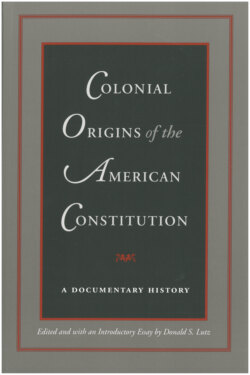Читать книгу Colonial Origins of the American Constitution - Группа авторов - Страница 24
На сайте Литреса книга снята с продажи.
Оглавление17
[Watertown Agreement on Civil Officers]
August 23, 1634
Although at times the records of a colony may have such a richness of expression and content that one gets the impression these settlers did little else but write things down on paper, in most instances the earliest colonial records are quite sketchy. Typically, the first item in the records that survives to our time is brief and dates from a time after the political process was already well under way. The current document is exemplary in this regard. It quite clearly assumes the existence of a community with a functioning town meeting. Thus, while the community is trying to better organize itself, it already has in place a system of direct popular consent that seems not to require any explanation or justification. When reading these documents, it is useful to ask what their authors had to assume in order to write what they did.
Taken from Watertown Records: First Book, Town Proceedings (Watertown, Mass.: Press of Fred G. Barker, 1894), 1. Spelling is the original, and the text is complete.
August 23, 1634.
Agreed by the consent of the Freemen, that there shalbe Chosen three persons to be [ ] the ordering of the civill affaires in the Towne One of them to serve as Towne Clerk, and shall keep the Records and acts of the Towne. The three chosen are William Jennison, Briam Pembleton, John Eddie.
